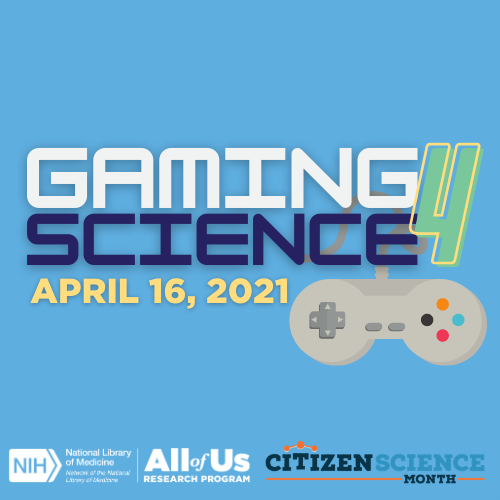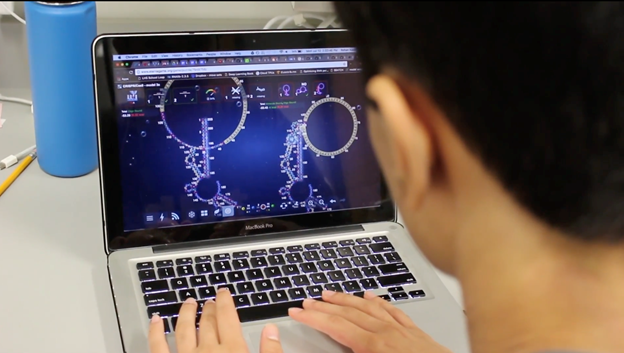Calling All Gamers: How a Day of Online Gaming Can Help Advance Health Research

Love video games? Put your gaming skills toward a great cause and join SciStarter, the Network of the National Library of Medicine All of Us Research Program, libraries around the world and other passionate volunteers — citizen scientists like you — for Gaming 4 Science Day during Citizen Science Month!

This April, Citizen Science Month, help researchers discover new Alzheimer’s treatments, come up with new strategies to improve mental health or even develop new vaccines. How? Playing games!
That’s right: many citizen science projects, including the ones featured for #CitSciMonth this April, can be done from the comfort of your gaming chair. Projects like Stall Catchers, Neureka and EteRNA come in the form of fun online games that citizen scientists can play to help project scientists’ crowdsource data on pressing medical research questions. On Friday, April 16, 2021, come together and play these games (and more) with other gamers and citizen scientists for Gaming 4 Science Day! RSVP today.
On Gaming 4 Science Day, you’ll have the opportunity to join Twitch or Discord servers to learn more about these gaming projects and play alongside others in real time. The event will be happening all day long, so citizen science gamers can come, play and go as they please. Hop online whenever you have time for a gaming break! If you fill out our RSVP form, we’ll be able to get in touch with you with details before the event.
Wondering how exactly playing these video games can help lead to breakthroughs in science and medicine? These citizen science projects work mainly by crowdsourcing data with the massive open laboratory method. The idea is that the more minds we have working on scientific problems, or the larger a set of study participants we have to beef up health data, the better the resulting science will be, and the more we promote diversity in research.
With games like Stall Catchers or EteRNA, players learn to solve problems that computers can’t quite pinpoint in the same way a human can. Getting huge numbers of people in on this effort helps scientists collect data much more quickly than they’d be able to on their own. Other games, like Neureka, ask citizen scientists to log data about their own health in their day-to-day lives. This is helping researchers learn to make more accurate predictions about dementia and other mental health conditions in individuals, not just broad categories of people.
Just like the All of Us program is aimed at creating a resource of health data from participants who represent the true diversity of the world, these projects give citizen scientists the opportunity to make their ideas and experiences heard in science, as well as to help make a difference in the lives of people in need of new advanced medical treatments.
Ready to get playing? All you need to join in on the fun is Internet access and a computer, smartphone or tablet. All are welcome! Participate on your own, or spread the word and play with friends! This #CitSciMonth event is also a great opportunity for e-sports teams and gaming clubs at colleges, universities, or public libraries to get involved and contribute to the scientific community. Discover all three projects before the event, and then RSVP to join us on April 16.

About the Author
Amy Reyes is an All of Us Community Engagement Librarian with the Pacific Southwest Regional Medical Library of the Network of the National Library of Medicine at UCLA.









